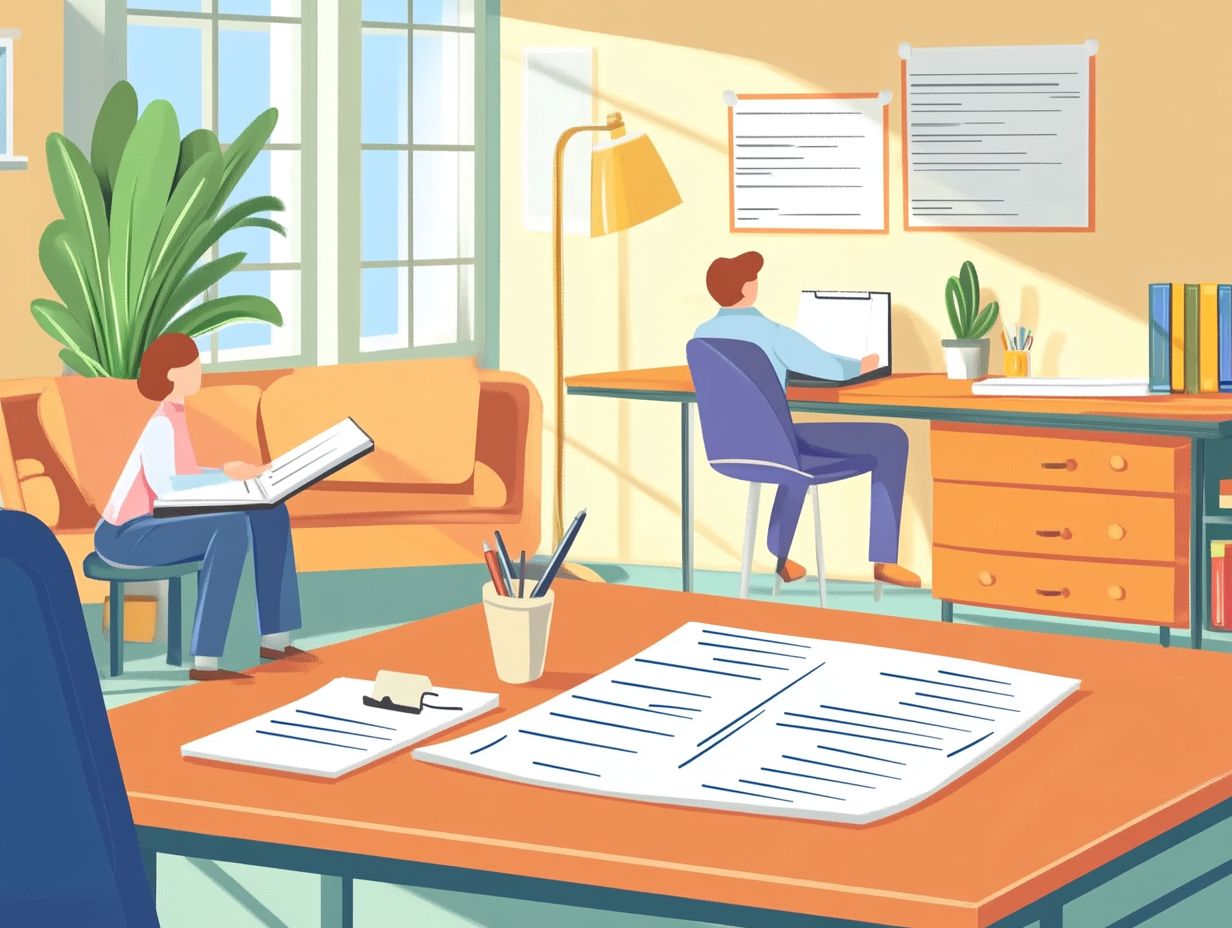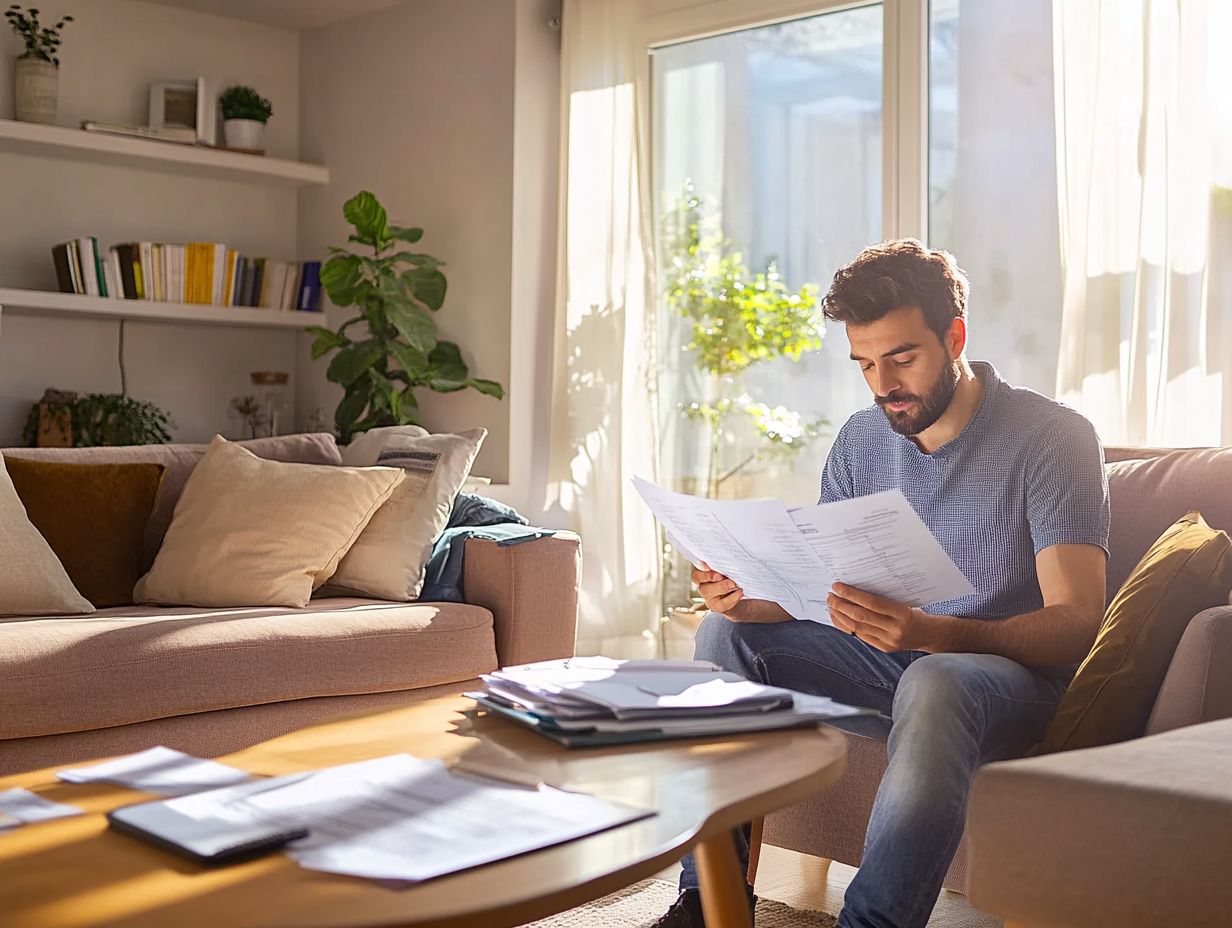How to Prepare for a Home Insurance Inspection?
When it comes to safeguarding your home, understanding the details of home insurance inspections is essential. These inspections serve as a vital tool for insurance companies to evaluate risk and ensure that homeowners are properly protected.
This article delves into what a home insurance inspection involves, why it’s necessary, and effective preparation strategies. From the common areas inspectors assess to tips on presenting your home in the best light, this guide will walk you through each step, making the process smoother and more advantageous.
Whether you re a first-time homeowner or simply refreshing your understanding, this guide will equip you with the insights you need to navigate the inspection landscape confidently.
Contents
Key Takeaways:
- Understand the purpose of a home insurance inspection.
- Ensure your home is ready for inspection.
- Work with your insurance company to resolve any issues identified in the inspection.

Understanding Home Insurance Inspections
Understanding the significance of home insurance inspections is crucial for you as a homeowner and for insurance companies. These inspections are pivotal in evaluating risk, determining coverage options, and ensuring your property s safety.
An inspection reveals critical insights about your home s condition, pinpointing potential hazards and structural issues that may go unnoticed at first glance. This process directly influences your coverage, so it s vital to get it right! It informs the insurer s decisions regarding policy terms while giving you the power to assess your coverage needs.
Armed with this knowledge, you can make well-informed decisions about necessary repairs and renovations, ensuring you remain adequately protected against unexpected events, including natural disasters.
What is a Home Insurance Inspection?
A home insurance inspection is a detailed assessment of your property s condition, carried out by a qualified inspector on behalf of your insurance company. During this inspection, various aspects of your home are carefully scrutinized, from the roof and plumbing to the electrical systems and safety features like smoke detectors and security systems.
The inspector, typically a licensed professional with extensive knowledge of home safety, will document any potential hazards that could affect your risk profile. This important evaluation assists in determining the right coverage limits for you and highlights any necessary repairs that may impact whether your home can be insured.
Ultimately, a thorough home insurance inspection is crucial for both you and your insurance provider, ensuring that your property meets safety standards.
Why are Home Insurance Inspections Necessary?

Home insurance inspections serve multiple important purposes, notably ensuring that you have adequate coverage and enabling insurance companies to assess the risk level of your property.
These inspections yield crucial insights that impact how premiums and coverage limits are determined, allowing insurers to evaluate potential claims and liabilities effectively.
By pinpointing issues like structural deficiencies or safety hazards, both you and your insurer can take proactive steps to address necessary repairs or adjust coverage. This approach enhances risk management and fortifies your financial protection against unforeseen events, such as natural disasters or accidents.
Importance for Insurance Companies and Homeowners
The significance of home insurance inspections is paramount for both insurance providers and homeowners, as they foster a thorough understanding of property conditions and the associated risks.
For insurance providers, these inspections play a vital role in helping to assess risks accurately, leading to more informed underwriting decisions. By uncovering potential hazards such as outdated wiring or roof damage, insurance providers can customize their policies and premiums to truly reflect the actual risks tied to a property.
On the flip side, homeowners gain invaluable insights into necessary repairs or safety enhancements that protect their investment and create a safer living environment. Being proactive not only helps you avoid disasters but can also boost your property s value! This cultivates a mutually beneficial alliance between both parties.
Preparing for a Home Insurance Inspection
Preparing for a home insurance inspection means being proactive about your property’s condition. By ensuring everything is in optimal shape, you can sidestep potential issues with your insurance coverage down the line, especially when considering how to prepare for a home insurance renewal.
Steps to Take Before the Inspection

Here are some essential tasks to consider before the inspection:
- Assess the condition of the roof.
- Check siding.
- Identify potential safety hazards, such as loose railings or faulty wiring.
Prioritizing regular maintenance tasks, like cleaning gutters and servicing heating systems, is key. Organizing documents that show past repairs is also helpful. This not only aids inspectors in understanding your home’s condition but also highlights safety features that may help you qualify for discounts. Additionally, learning how to protect your home against insurance fraud can further safeguard your investments.
What to Expect During a Home Insurance Inspection
During a home insurance inspection, you can anticipate a comprehensive evaluation of your property carried out by a qualified inspector. To prepare for this process, it’s helpful to know what you should do before getting home insurance. They will meticulously assess various aspects of your home to ensure everything is in order.
Common Areas and Items Inspected
During a home insurance inspection, common areas and items are scrutinized with meticulous care. This includes critical systems and structural elements that directly affect the safety and insurability of your property. To ensure you’re fully prepared, consider reviewing what to do before buying home insurance.
One key focus is on HVAC (heating, ventilation, and air conditioning) systems. These systems are crucial for maintaining climate control and air quality in your home, effectively mitigating health risks tied to poor ventilation. Inspectors also conduct a thorough examination of plumbing systems, looking for leaks, assessing water pressure, and evaluating overall condition these factors are essential for preventing water damage and mold issues.
Electrical components will be carefully reviewed to ensure they adhere to safety standards, minimizing fire hazards. Inspectors will evaluate your roof’s condition, as any compromise here can lead to significant damage over time. Likewise, windows are inspected for their integrity and energy efficiency, playing an important role in both insulation and security.
Altogether, these elements contribute to a comprehensive assessment, ensuring that your home remains a safe and secure investment.
Tips for a Successful Home Insurance Inspection

To ensure a successful home insurance inspection, take several proactive steps that showcase your property in the best possible light. Knowing what to expect during a home insurance inspection can also help you prepare effectively.
Get started on your home s inspection preparations today to secure the best coverage!
How to Present Your Home in the Best Light
Presenting your home during an inspection means showcasing its strengths while ensuring that no overlooked areas raise red flags. To accomplish this, prioritize cleanliness, as a tidy space leaves a lasting positive impression.
Deep cleaning every room is essential. Make sure carpets, windows, and surfaces shine. Organization plays a crucial role as well. Clearly labeling and storing items not only declutters but also illustrates the home’s functionality.
Don’t overlook safety features. Ensure smoke detectors and alarms are operational, and address necessary repairs, like leaky faucets or chipped paint, ahead of time.
Get ready to impress potential buyers by creating an inviting atmosphere that resonates with them.
Dealing with Inspection Findings
Navigating inspection findings is an important time for homeowners. You need to address any issues uncovered during the inspection and negotiate with insurance companies for changes in your coverage.
This process ensures your home remains protected and helps you make informed decisions moving forward.
Addressing Issues and Negotiating with Insurance Companies
Addressing issues identified in a home insurance inspection requires a proactive stance when negotiating with your insurance company for policy changes.
Document these issues thoroughly and present them clearly to improve your chances of obtaining necessary repairs and modifications. Gather all relevant information, such as photographs of the damage, estimates from qualified contractors, and any prior communication with your insurance provider.
When you approach the insurance company, speak calmly and clearly about your specific concerns to facilitate a productive dialogue.
Understanding your policy terms helps you negotiate effectively for your needs, leading to a more satisfactory resolution.
Frequently Asked Questions
What is a home insurance inspection?
A home insurance inspection is a thorough evaluation of your property by an insurance company representative to assess its condition and determine coverage and premium for your home insurance policy.
Do I need to prepare for a home insurance inspection?
Yes, it is important to prepare to ensure your property is adequately covered and potentially lower your insurance premiums.
What can I expect during a home insurance inspection?
During an inspection, the inspector will walk through your property, take photos, and ask questions about your home s condition and features. They may also inspect the exterior and any additional structures on your property.
How can I prepare for a home insurance inspection?
To prepare, ensure your property is well-maintained and in good condition. Clear any clutter or debris from both the interior and exterior. Additionally, it’s helpful to read up on preparing for your home insurance adjuster visit and have documentation of any recent renovations or upgrades available for the inspector.
What should I do if I have pets or children at home during the inspection?
If you have pets or children at home, keep them in a separate area to allow the inspector to conduct a thorough evaluation. Inform the inspector beforehand to make necessary accommodations.
What happens after a home insurance inspection?
After an inspection, the insurance company reviews the gathered information and determines coverage and premium for your policy. You will receive a report outlining necessary repairs or improvements and may be able to adjust your policy based on the inspector’s recommendations.
Ready to take the next step? Contact a professional for help with your home insurance needs!





